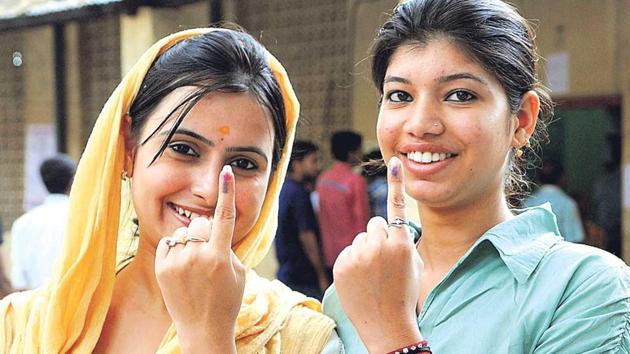Political donations: It’s time to revisit the idea of a National Election Fund
Cleaning up the system of political funding will help close the tap on a potent source of black money. It will also ensure a level playing field for all stakeholders in a multi-party democracy such as ours
The presentation of the Union budget is often followed by discussions on what it has done to push economic reforms. The focus of the discourse this time, however, has been on political reforms – triggered by the finance minister’s announcement to ban cash for donations exceeding Rs 2,000 and introduce electoral bonds that can be purchased and traded in the marketplace.

There is a reason why the proposal relating to funding of political parties has overshadowed other budgetary measures. In the wake of demonetisation, Prime Minister Narendra Modi and his government have been under pressure to do more to curb black money. No campaign against illegal wealth, many have argued, will be effective unless it addresses the lack of transparency and regulation in relation to funding of political parties.
Political donations not only offer an easy channel to evade taxes, but also undermine the basic tenets of our democracy. Under the law, these payments are exempt from taxation for both the donor and the recipients. There is no system in place for adequate scrutiny of the end use of these funds. A majority of donations come in the form of cash and are from unidentified sources. In 2014, the Election Commission ordered only donations made in cheques or bank transfers to be exempted from taxation, but that hasn’t deterred people from helping political parties with cash.
According to the Association of Democratic Rights, an advocacy group, 69% of the total income reported by the country’s six national and 51 regional parties, which filed their returns for the period between 2004-05 and 2014-15, came from unknown sources. Only 16% came from named donors, while the remaining 15% accrued from other sources such asset sale, and membership fees. This is only one side of the spectrum. On the other side, around 1,500 parties – more than three-fourth of the 1,900 parties registered with the Election Commission– haven’t contested elections for years. Each of them is a possible platform to launder illegal money.
Read | Cash donation limit, bonds to reform polls fail to impress experts, parties
The lack of transparency and accountability in relation to political donations also breeds the ground for rent-seeking and corruption. Businesses, small and big, contribute funds to a political party or its candidate with the expectation that the favour would be returned. They influence policy and government actions when their friendly political party comes to power. This is not unique to India, but unlike many mature democracies there is no institutional framework to deal with the problem. That is why finance minister Arun Jaitley’s budget proposal has come under criticism, because it doesn’t address the issue of anonymous donors. Nor does it answer the question as to why it can’t be made mandatory for political parties to adhere to the same auditing principles that apply to any other economic entity or public institution and make their financials public.
That said, there is a bigger objective that any electoral reform initiative ought to address – ensuring a level playing field for all stakeholders in a multi-party democracy such as ours. The more competitive a democracy gets, the better it is for the people of the country. It is time, therefore, to revisit the idea of a National Election Fund, which has been in the works for more than two decades. Such a fund could be declared as the only channel through which businesses and individuals can contribute to political parties. Just as the finance commission decides how to distribute central transfers to states, the Election Commission or any institution created for the purpose of administering the fund can decide how the donations are shared among parties. Of course, such an initiative will have to be supported by other measures such as stricter audits for books of accounts maintained by political parties and cracking down on parties that exist only on paper.
Read | Budget 2017: The move towards transparent funding is the first step towards electoral reform
The author is Chief Content Officer, Hindustan Times
Follow the author @rajeshmahapatra





